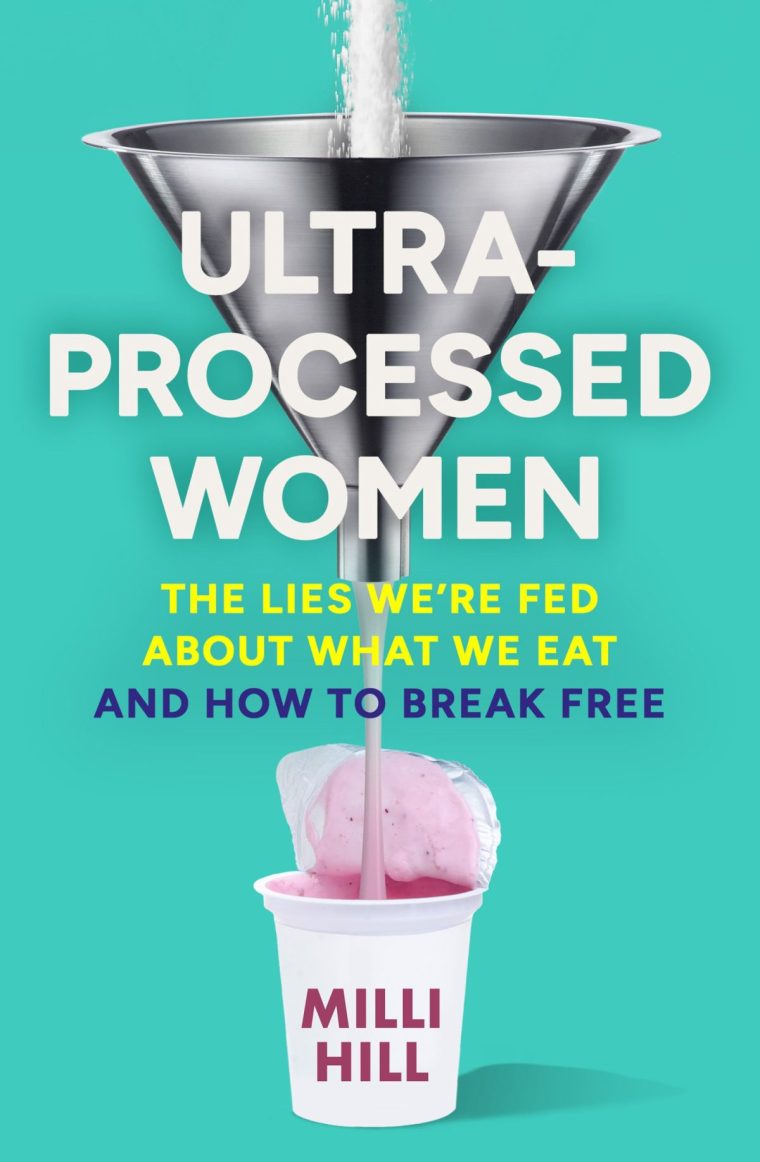A diet high in ultra processed foods is associated with an increased risk of several health conditions, and could be hitting women harder
Ultra processed foods have hit the headlines in recent years, thanks to the global success of Chris van Tulleken’s 2023 book Ultra Processed People. Since then, more studies have shown that a diet high in UPFs is associated with an increased risk of everything including cardiovascular disease, high blood pressure, metabolic diseases including type 2 diabetes, anxiety, dementia and some cancers.
When psychotherapist and writer Milli Hill navigated the menopause, she started wondering how much the way we eat factors into how women experience that change.
“The [UPF] conversation made me think about how women are medicalised in so many different ways, but we don’t talk about ultra processed food being involved,” she explains. “No one was asking ‘What about women?’”
That one question prompted her to begin her own research, resulting in her latest book, Ultra Processed Women.
What are UPFs?
UPFs are industrially processed foods that contain ingredients we wouldn’t have in our kitchens or, as Milli says, “factory made food-like products”. The level of ultra processing can of course vary (one product could have a single emulsifier, while another could be almost entirely additives).
She says: “I think we do actually all know what real food is when it comes down to the wire. Ultimately, if it’s wrapped in plastic, made in a factory and contains ingredients you don’t recognise on the back, then it is ultra processed food.”
Links between UPFs and women’s health
As for how UPFs affect women, Milli says the connections spun out in every direction. “Every time I started researching a new female health condition I would quickly find evidence to show associations between high UPF consumption and worsening of the condition.”
She first looked at the menstrual cycle and its adjacent states. In 2023, a meta-analysis found that “a diet rich in processed food was demonstrated to be associated with increased miscarriage risk”.
The so-called ‘soda studies’ looked at soft drink consumption in pregnancy in 2010 and 2012 and found that there is an association between preterm birth and both artificially sweetened and sugar sweetened sodas. An increase in UPF consumption has also been associated with exacerbating PMS symptoms and the severity of menstrual cramps; while the severity of menopause symptoms have also been associated with increased UPF intake.
Milli also looked at the conditions with which women are more likely to suffer, like autoimmune conditions – 90 per cent of lupus patients are female, and a 2024 study found that a higher cumulative intake of UPF daily was associated with a 50 per cent increase in risk of developing lupus.
Ultra processed foods are also a potential culprit in the rise of inflammatory bowel diseases, of which Crohn’s disease is more prevalent in women.
Milli also found a clear relationship between high consumption of UPF and dementia risk, and ”that replacing 10 per cent of UPF in your diet with an equivalent amount of unprocessed or minimally processed food could lower your dementia risk by around 19 per cent”.
Women are also more likely to suffer with mental disorders like depression and anxiety, both of which are associated with UPF intake. One study found that participants who ate nine or more servings per day of UPFs – particularly those containing artificial sweeteners – had a 50 per cent greater risk of developing depression. One significant randomised control trial found that when people who were in treatment for moderate to severe depression changed their diets and ate fewer UPFs, a third met the criteria for remission.
Women are targeted by UPF marketing
And all of this is exacerbated, Milli says, by the ways that women are specifically targeted by UPF marketing.
“Wherever there’s a female health problem [or concern], there’s a market for all sorts of products,” she says. This spans from targeting women with UPFs marketed as ‘low fat/low calorie’ to specific products for specific concerns. “The most stupid example of that,” she says, “was a big bar of chocolate being sold as ‘menopause chocolate’ by a health food shop, where the information on the back said you should eat one of them a day.”
 Milli’s book delves into her theories on why UPFs impact women’s health so severely
Milli’s book delves into her theories on why UPFs impact women’s health so severely
Even meals becoming easier to prepare has historically been sold to women as a solution for a woman’s problem – the TV dinner or ready meal is a solution for the tired (and historically female) head of household.
Why do UPFs affect women’s health?
Milli has several theories on why they could be impacting women’s health: that our bodies aren’t recognising the ingredients and are mounting an immune response; that it’s due to the nutrients we are missing by not eating whole foods; that emulsifiers and other additives are causing specific problems; that it’s affecting our microbiomes or affecting our hormones. “It seems like it’s probably a mix of all of these things, but it still needs lots more research to fully understand what’s going on.”
For Milli, the process of learning about UPFs and all these associations has completely changed how she eats.
How to eat moving forward
There are certain foods that she now tries to not have in the house (flavoured yoghurts, snack bars, supermarket ice creams) and she does her best to avoid sliced bread (but “we still have it around sometimes because I’ve got three kids, and two teenagers”). She misses the convenience of shop-bought mayonnaise and stock cubes, but other than that there’s no snack that she used to love and still now craves.
Milli later began exploring the shared ingredients in the cosmetics we use and the food we eat. “I was so shocked to find that there were these overlaps between what I was putting on my face and what I was eating. I thought that was mind blowing. It’s just another nail in the coffin for the UPF. It made me realise how unnatural it all is.”
It’s changed how her family eats too. Recently she took her youngest to McDonald’s for dinner, as a rare treat after a late sports game. She sat with her 11-year-old son with the food in front of them, and they both felt a bit grossed out. “I didn’t want to spoil it for him so I just went along eating,” she explains, “but he then said: ‘Mum, I don’t think we should come to McDonald’s anymore. I think this is really disgusting.’ It stuck with me.”
Despite her own aversion, she cautions against being hardline with anyone else, especially kids. She wouldn’t advise banning all UPFs, and that it’s more “about taking an interest in the ingredients, getting kids involved in cooking, growing your own food if you can, getting them to think about what is in something that they want to eat.”
In particular, she is wary of this just becoming another thing that women are made to feel guilty about.
“I’m not a purist, and I don’t want to set myself up as a model or a guru for any particular diet. Life is busy and sometimes you just have to grab a Tesco meal deal.”
It’s for this reason, for example, that processed meats like ham, bacon and sausages (which are classified as a Group 1 carcinogen by World Health Organization, but are technically not always ultra processed) are still on the menu, just not every day, as per the NHS health advice. “We’re definitely not completely UPF-free,” she says “I’d say we’re taking the 80:20 approach.” This means eating whole foods 80 per cent of the time, with room for UPFs 20 per cent of the time.
“We need governments and policy makers to come in as well on this and do something about it at a greater level,” Milli urges. “But for individuals, I’m very keen to get the message across that the small changes you can make will make a difference, and not to feel overwhelmed.”
